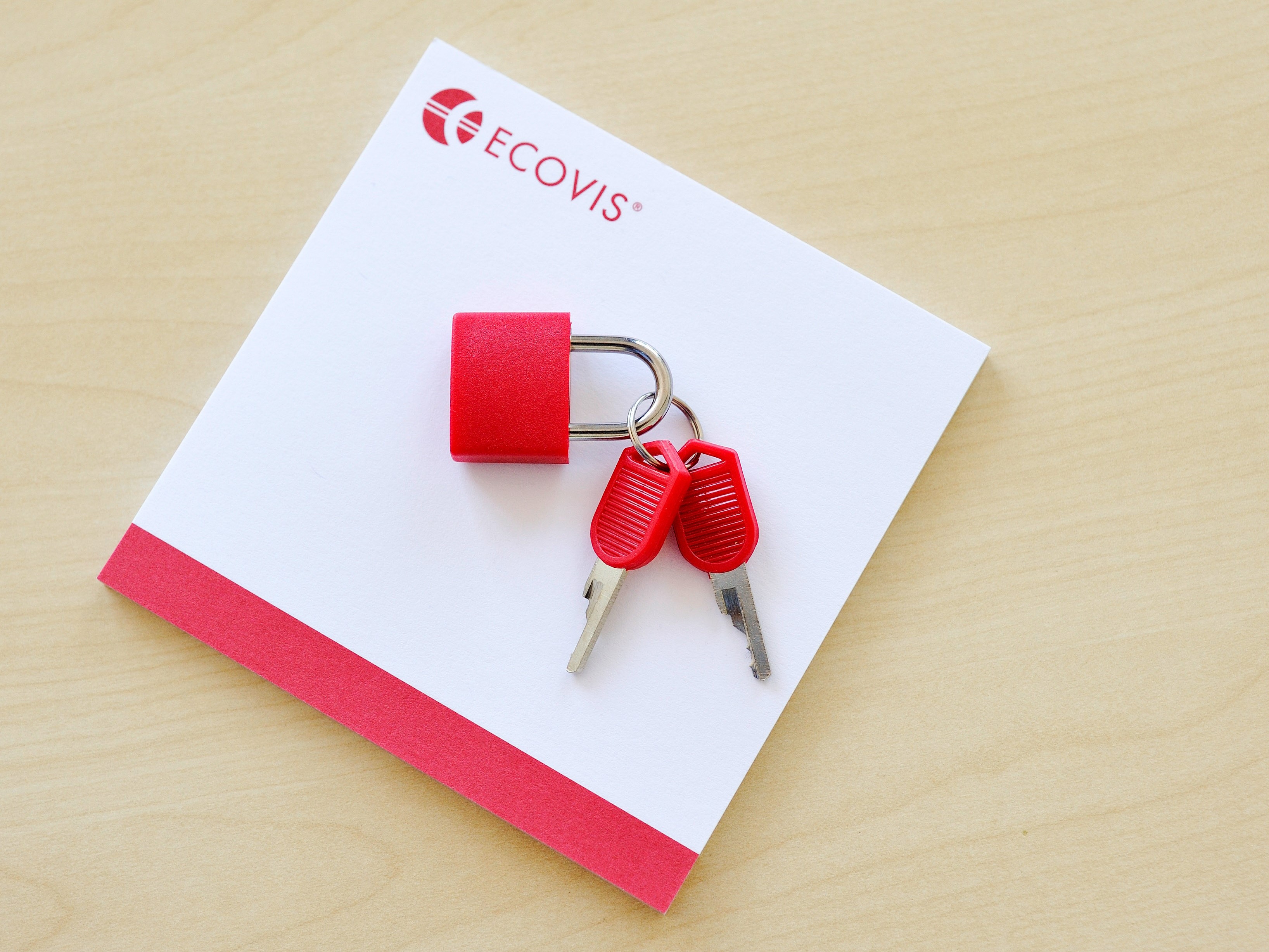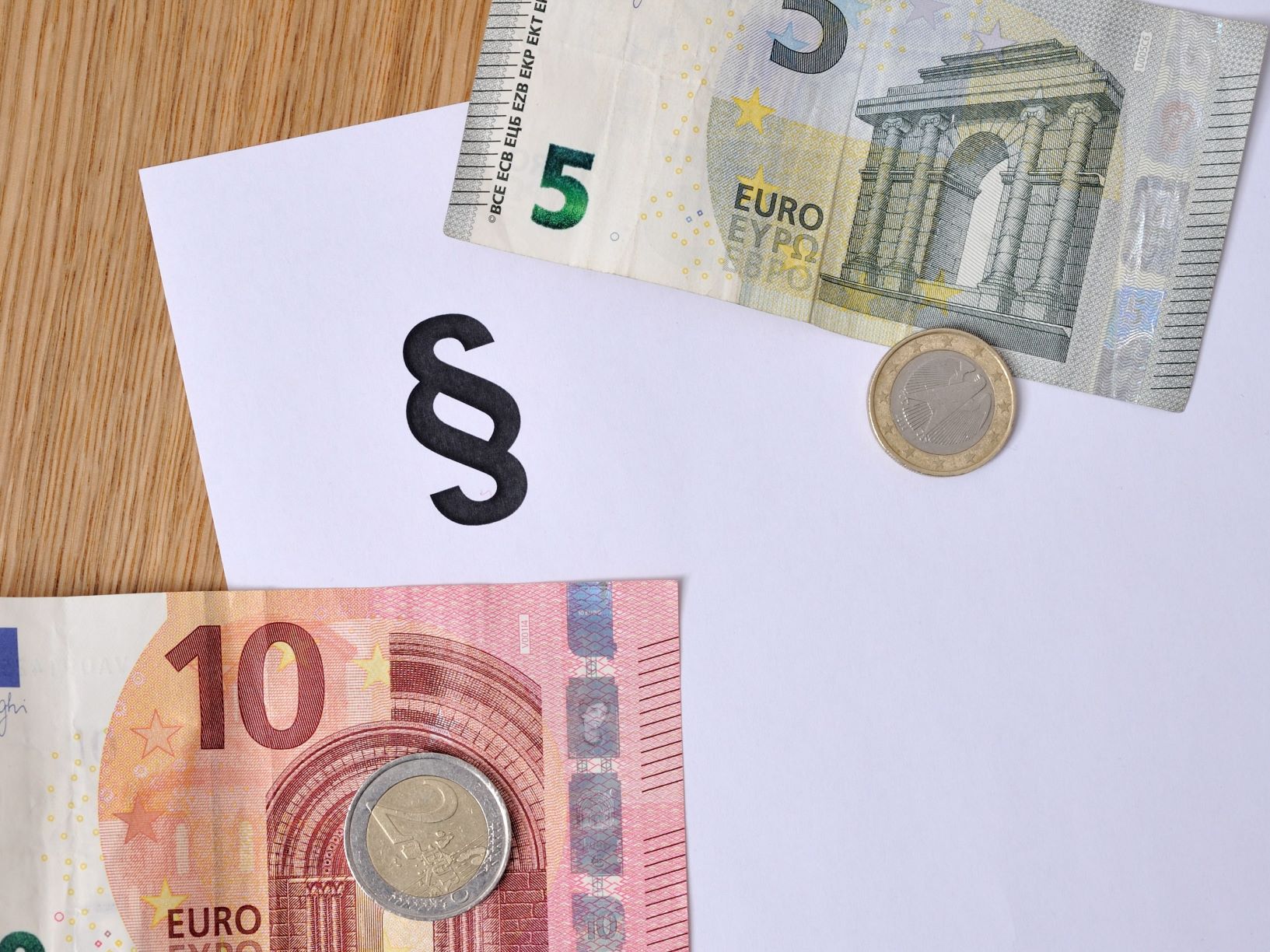EU General Product Safety Regulation: new obligations and responsibilities for economic operators
A new European Union regulation on general product safety enters into force (Regulation (EU) 2023/988 on general product safety, amending Regulation (EU) No 1025/2012 and Directive (EU) 2020/1828 and repealing Directives 2001/95/EC and 87/357/EEC ), which will replace the current legislation with effect from 13.12.2024 (hereinafter referred to as „GPSR“ - General Product Safety Regulation).
The current arrangement in the form of EU Directive 2001/95/EC and Act No. 102/2001 Coll., on general product safety, which transposed the Directive into Czech law, will be modernized to strengthen consumer protection and improve the safety of products sold in the EU. The GPSR primarily focuses on easier identification of the manufacturer, more thorough labelling of products and efficiency in dealing with safety problems.
The GPSR sets out new product safety requirements and the resulting obligations and responsibilities of manufacturers, importers, distributors and online marketplace providers. Unlike the previous Directive, the GPSR also applies to online marketplace providers, which is an important change for all those selling products to consumers. The GPSR aims to improve the functioning of the internal market and ensure a high level of consumer protection.
With the change in the form of the legislation from an existing directive to a regulation, the need to transpose the directive into national law disappears. Thus, there will be no major changes to Act No 102/2001 Coll. and the main changes will consist only in adapting the provisions so that they do not conflict with the new GPSR. The GPSR does not apply to products that are subject to special regulation, such as children's toys, foodstuffs or animal feed.
The new regulation will result in changes that manufacturers, importers and distributors will have to reflect. Below you will find a brief list of the biggest changes that are coming not only for e-shop operators in relation to the GPSR and for which you need to prepare:
Obligation to identify the manufacturer in the tender
The seller is now obliged to indicate in the offer the name of the manufacturer, his registered trade name or trademark, the address and the electronic address at which he can be contacted (Article 19(a) GPSR). If the manufacturer is not established in the EU, he is obliged to appoint a responsible person established in the EU and the seller is obliged to indicate his name, postal and electronic address (Article 19(b) GPSR).
Obligation to include warnings and safety information in the offer
There is also a new obligation to provide safety information and warnings in a language that consumers can understand. This information is to be provided on the packaging of the product or in the accompanying document and, in the case of distance selling, also in the offer (Article 19(d) GPSR).
Notification via the Safety Business Gateway
With the entry into force of the GPSR, the obligation to report suspected non-compliance with the product-related obligations set out in the GPSR (Article 9(8)(c) GPSR, Article 11(8)(d) GPSR, Article 12(4)(c) GPSR) via the newly established Safety Business Gateway also applies.
The seller is also obliged to inform the manufacturer immediately if he becomes aware of an accident caused by the product (Article 20(3) GPSR), who will take further action in accordance with the GPSR.
Obligation to check before placing the product on the market
Before placing a product on the market, the seller is now obliged to check that the manufacturer or importer has complied with the obligations set out in the GPSR (Article 12(1) GPSR). This primarily involves checking that the product is properly labelled and that all necessary information is provided. If the seller considers that all obligations have not been fulfilled, he must notify non-compliance with the GPSR via the Safety Business Gateway (Article 12(4)(c) GPSR).
Product recall
In the event of a recall for safety reasons, the seller is obliged to inform the affected consumers directly of the recall (Article 35(1) GPSR) or, if direct contact is not possible, through the channel with the greatest possible reach (Article 35(4) GPSR).
Where the seller is responsible for the recall, he is obliged to offer the consumer at least two of these three remedies free of charge (Art. 37(2) GPSR):
- repair of a product withdrawn from circulation;
- replacement of a recalled product with a safe product of the same type;
- a refund of the purchase price at least equal to the amount paid by the customer.
In the following passages we will discuss the individual GPSR articles in more detail.
Scope of the General Product Safety Regulation (Article 2)
The GPSR lays down rules for products intended for consumers. According to Article 2 of the GPSR, its scope is limited to products that are intended for consumers or can reasonably be foreseen to be used by consumers even if they are not intended for them. This includes both new and used products that are repaired or recycled.
The GPSR applies to both non-harmonized products (without specific EU regulations) and harmonized products (with EU regulations) in cases where the risks or risk categories are not covered by the relevant harmonization regulation.
Expressly excluded:
- Human and veterinary medicinal products
- Food and feed
- Living plants and animals
- Antiquities
- Plant protection products
The GPSR does not affect other European consumer protection legislation and requires the application of the precautionary principle in risk management. Manufacturers must consider all possible risks associated with their products and take measures to eliminate or reduce them.
Definitions for the General Product Safety Regulation (Article 3)
Article 3 of the GPSR contains important definitions necessary for its proper implementation. Some of the key terms include:
- „Launch on the market“: The first delivery of a product to the Union market, while „delivery to the market“ refers to any further making available of a product to consumers or for distribution in the EU, whether for remuneration or free of charge.
- „Economic operators“: Manufacturer, importer, distributor and full service order fulfillment provider. A manufacturer is a person who places a product on the market under his own name. The importer is responsible for placing the product from a third country on the Union market. The distributor is the entity that ensures the redistribution of the products in the EU, and the full service order fulfilment provider takes care of activities such as storage, packaging and dispatch.
- „Risk“ and „product posing a serious risk“: The combination of the likelihood and severity of potential harm that may threaten the health or safety of consumers or other public interests. In the event of a serious risk, a rapid market surveillance response is required.
- „Withdrawal from circulation” and „Withdrawal from the market“: While a recall prevents a product from remaining in the supply chain, a withdrawal targets products that have already been made available to the end user.
- „Market surveillance authority“: the authority designated by the Member State in accordance with Article 10 Regulation (EU) 2019/1020 as the authority responsible for the organization and exercise of market surveillance in the territory of that Member State.
- „Market surveillance“: the activities and actions of market surveillance authorities to ensure that products comply with the requirements set out in the GPSR.
Distance selling (Article 4)
Article 4 of the GPSR determines when an offer for sale is deemed to be directed at consumers in the EU. The GPSR applies to all products offered online or by other means at a distance, as long as the offer is directed at consumers in EU Member States.
In order for a sales offer to be considered as targeting EU consumers, various factors need to be considered, such as the geographical areas where the goods can be sent, the languages used, the currency or the specific domain. However, an EU-only interface is not enough - it must be clear that the operator is actually targeting its offer to the EU. This approach follows the CJEU's judgment in C-585/08 and C-144/09 (Pammer and Alpenhof), which deal with the targeting of commercial activity to a specific country within the EU.
Obligations of producers (Article 9)
Article 9 of the GPSR introduces a number of obligations for manufacturers of non-harmonized products to ensure the safety of products on the market. These obligations are formulated in such a way that manufacturers proactively prevent risks and respond effectively to potential safety problems.
- Risk analysis and technical documentation: Before placing a product on the market, manufacturers must carry out an internal risk analysis and produce technical documentation to demonstrate that the product is safe. This documentation must include information on safety precautions and the selected European standards, if applicable (Article 9(2-3) GPSR).
- Safety in mass production: The manufacturer has to ensure the safety of products, even in mass production, by putting in place control mechanisms that monitor the safety of the production processes and the components used (Article 9(4) GPSR).
- Product marking: The manufacturer must label the product properly, including the type, batch or serial number, and include the name, trade name and contact details of the manufacturer. This information should be easily visible and legible (Article 9(5-6) GPSR).
- Manuals and safety information: Products for which this is necessary must be accompanied by instructions for use and safety information, which must be in Czech if the product is sold in the Czech Republic (Article 9(7) GPSR).
- Remedial measures and communication: If the product presents a safety risk, the manufacturer must take effective measures, inform the consumer and the responsible authorities and, where appropriate, ensure that the product is withdrawn from circulation. The Safety Business Gateway is used to inform consumers and supervisory authorities (Article 9(8-9) GPSR, Article 35-36 GPSR).
- Supply chain communication: The manufacturer is to inform the supply chain of any identified safety problems that could put consumers at risk (Article 9(10) GPSR).
- Consumer complaints and internal register: The manufacturer must make available the means by which consumers can lodge complaints and keep an internal register of such complaints. Manufacturers are obliged to investigate complaints and take remedial action where appropriate (Article 9(11-13) GPSR).
Obligations of importers (Article 11)
Article 11 of the GPSR sets out the obligations of importers of non-harmonized products to ensure that safe products are placed on the market. Some of these obligations already exist today, while others are new. Importers are responsible for ensuring that the products they place on the market meet general safety requirements.
- Ensuring product safety: Before placing a product on the market, the importer must ensure that the product complies with the general safety requirements set out in Article 5 of the GPSR and that the manufacturer complies with the requirements set out in Article 9(2), (5) and (6), which include carrying out an internal risk analysis, drawing up a technical dossier and properly labelling the product (Article 11(1) of the GPSR). The importer must verify that the manufacturer has supplied safe products which contain the necessary information to demonstrate safety and are correctly labelled.
- Illegal marketing of products: An importer may not place on the market products which he has reason to believe do not meet the general safety requirements or that the manufacturer has not carried out a risk analysis and prepared technical documentation (Article 11(2) GPSR). A product may only be placed on the market if it meets all legal requirements.
- Notification of dangerous products: In the event that the importer discovers that the product is unsafe, he must inform the manufacturer and ensure that the relevant supervisory authorities are informed via the Safety Business Gateway. The importer may verify that the manufacturer has made the relevant notification or notify himself.
- Marking of products: The importer must properly label the products he places on the market, which includes indicating his name, registered trade name or registered trade mark, postal and electronic address. If it is not possible to provide the required information directly on the product, it may be provided on the packaging of the product or in an accompanying document (Article 11(3) GPSR). The inclusion of a website does not satisfy the requirement to provide an electronic address.
- Instructions and safety information: The importer is obliged to include clear instructions and safety information with the product if this is necessary for its safe use. If the product is placed on the market in the Czech Republic, this information must be in Czech. Instructions and safety information need not be included if the product can be used safely without them (Article 11(4) GPSR).
- Storage and transport: The importer must ensure that the conditions of transport and storage of the products do not compromise their safety. The importer should take into account temperature requirements, lighting conditions and other factors related to the nature of the product (Article 11(5) GPSR).
- Retention of technical documentation: Importers must keep the technical documentation drawn up by the manufacturer for 10 years after the product has been placed on the market. This documentation must be made available to the surveillance authorities if they so request (Article 11(6) GPSR).
- Cooperation with supervisory authorities: Importers must cooperate with surveillance authorities and manufacturers to ensure product safety (Article 11(7) GPSR).
- Remedial measures: If the importer finds that the product is unsafe, he must inform the manufacturer and ensure that remedial measures are taken, which may include withdrawing the product from circulation (Article 11(8) GPSR). The importer must also inform consumers of the measures taken and ensure that the supervisory authorities in the Member States where the product has been placed on the market are informed via the Safety Business Gateway.
- Verification of communication means: Importers must verify that the manufacturer has provided the public with a means of lodging complaints and complaints about product safety. If this means is not available, the importer must provide it (Article 11(9) GPSR).
- Maintenance of the internal register: Importers are obliged to keep an internal register of complaints and complaints which they must investigate and inform the manufacturer and other interested parties of the results of the investigation (Article 11(10) and (11) GPSR). This register may only contain personal data necessary for the investigation of the complaint and must be kept for a maximum of 5 years.
Obligations of distributors (Article 12)
Article 12 of the GPSR sets out obligations for distributors to ensure that safe products are placed on the market. Some of these obligations are already in force, while others are new and concern non-harmonised products. A distributor is a natural or legal person who supplies a product to the market, in addition to the manufacturer or importer.
- Verify compliance with requirements: Before making the product available on the market, the distributor shall verify that the manufacturer has complied with the requirements referred to in Article 9(5) to (7) or the importer with the obligations referred to in Article 11(3) and (4). This shall include verification of the labelling of the product, which shall be clear and not be covered by other information, and the attachment of instructions and safety information in the Czech language if the product is sold on the Czech market.
- Ensure storage and transportation conditions: Distributors must ensure that adequate conditions are maintained during transport and storage to protect product safety and compliance with the requirements of Articles 9 and 11.
- Do not supply non-conforming products: A distributor shall not place on the market products which do not comply with safety or labelling requirements if he has reason to believe that the product is unsafe.
- Inform about non-conforming or dangerous products: The distributor is obliged to inform the manufacturer or importer if he has reason to believe that the product supplied does not meet the labelling requirements or lacks the necessary information. He must also ensure that effective corrective action is taken, which may include the withdrawal of the product from circulation, and inform the relevant supervisory authorities of such action via the Safety Business Gateway.
Obligations of persons responsible for products placed on the market (Article 16)
Under Article 16 of the GPSR, a responsible person established in the European Union must be designated for each product placed on the single market to ensure the safety of the product. This person acts as a partner vis-à-vis the market surveillance authorities and, in the case of risky products, implements specific measures to ensure their safety.
The responsible person may be:
- manufacturer established in the European Union, whereby a manufacturer is defined in Article 3(8) of the GPSR as „a natural or legal person who places on the market, under his name or trademark, a product which he manufactures or has designed or manufactured“;
- importer, which, as defined in Article 3(10) of the GPSR, means „a natural or legal person established in the Union who places a product from a third country on the Union market “;
- authorized representative, which, as defined in Article 3(9) of the GPSR, means „a natural or legal person established in the Union who has been mandated in writing by the manufacturer to act on its behalf in carrying out specific tasks related to the manufacturer's obligations under this Regulation“;
- a full-service order fulfilment provider based in the Union, which, as defined in Article 3(12) of the GPSR, means „a natural or legal person who, in the course of a commercial activity, offers at least two of the following services: storage, packaging, addressing and dispatching, without being the owner of the products concerned, excluding postal services within the meaning of Article 2(1) of Directive 97/67/EC of the European Parliament and of the Council, parcel delivery services within the meaning of Article 2(2) of Regulation (EU) 2018/644 of the European Parliament and of the Council and any other postal or freight services“, for products handled by him and where no other responsible person is established in the European Union.
The responsible person shall perform the following tasks:
- verifies and keeps technical documentation for products for 10 years;
- at the request of the supervisory authority, make available technical documentation and other necessary information in the Czech language;
- inform the supervisory authority in the event of a suspected product risk;
- ensure immediate corrective action in the event of non-compliance;
- checks the conformity of the product with the technical documentation and labelling requirements;
- report an accident caused by the product.
The name, business name and contact details of the responsible person must be indicated on the product or its packaging to facilitate traceability in the supply chain.
Obligations of economic operators when selling products at a distance (Article 19)
Article 19 of the GPSR sets out specific requirements for operators selling products via the internet or other distance selling methods, including social networks. The aim is to ensure transparency of information for consumers and increase the safety of products available on the EU market.
The GPSR requires that any product offered on the market must, when sold online or by other means at a distance, clearly identify the responsible body established in the EU by the name, registered trade name or registered trademark of the manufacturer and a postal and electronic address at which the manufacturer can be contacted.
In the case of products that are not manufactured in the EU, the labelled body must be able to fulfil all its obligations towards consumers and supervisory authorities under the rules set out in Article 4 Regulation (EU) 2019/1020 of the European Parliament and of the Council of 20 June 2019 on market surveillance and product compliance. This hierarchical approach prioritizes the responsible actors as follows:
- Manufacturer based in the EU: Where the manufacturer is established in the Union, it is directly responsible for placing the product on the market and must ensure its safety, transparent communication of information and compliance with product documentation requirements. The name of the manufacturer, his trade name or trademark and his postal and electronic address shall be prominently displayed on the sales page.
- Importer, if the manufacturer is not established in the EU: If the manufacturer is not established in the EU, the importer takes responsibility. The importer must ensure that the product offered meets all safety and information requirements. The contact details of the importer who is responsible for compliance with EU requirements and cooperation with supervisory authorities must be indicated on the offer page.
- Authorized representative: In the event that a manufacturer outside the EU appoints an authorised representative, the responsibility passes to him. This representative shall be duly authorised by the manufacturer to act on his behalf and to perform all tasks necessary for compliance with the GPSR and product safety.
- Full-service order fulfillment provider based in the EU: If none of the above entities is established in the EU, the responsibility is assumed by the full service provider. This provider must ensure that the products comply with EU legislation and cooperate with the supervisory authorities.
In addition to the designation of the responsible entity, Article 19 of the GPSR sets out the following obligations:
- Product identification information: Each product offered must be clearly marked with identifying information such as name, type, batch, serial number or other unique identifier. The representation of the product must correspond to its actual form and contain details to facilitate unambiguous identification.
- Safety and warning information: If required by specific regulations or safety aspects, warning and safety information must be provided on the sales page in the language of the country where the product is offered (e.g. in Czech for the Czech Republic).
Safety Business Gateway (Article 27)
Article 27 of the GPSR requires the European Commission to establish a Safety Business Gateway to facilitate the reporting obligations of operators and online marketplace providers to market surveillance authorities. The GPSR requires these operators to inform the surveillance authorities of unsafe products, incidents related to products that have been placed or supplied on the market, and also to transmit information to consumers regarding safety issues (Articles 9(8) and (9), 10(2), 11(2) and (8), 12(4), 20 and 22 of the GPSR) via this portal.
The portal is already available on the European Commission's website under the title „Safety Gate: the European rapid alert system for dangerous non-food products“ (https://webgate.ec.europa.eu/gpsd/screen/public/home). Currently, manufacturers and distributors can submit information on dangerous products and measures taken, but with the entry into force of the GPSR this will become mandatory.
The Safety Business Gateway contains two different areas: an internal part for supervisors and an external part that is accessible to operators and online marketplace providers. To access the external area, you need to set up an EU Login account. Instructions on how to create an EU Login and details on notifications are provided in the User Guide for Manufacturers and Distributors included in the Annexes.
The European Commission is currently working on updating this portal to meet all the requirements set out in the GPSR. Once the update is completed, a new user manual will also be prepared. The update of the portal should be completed by 13 December 2024, when the GPSR will enter into force.
Conclusion
In conclusion, we can say that the main changes to the GPSR are for e-shop or marketplace operators and concern the need to provide more information on products that is not normally provided today and to control compliance with the GPSR by the manufacturer, importer and distributor. A big change for everyone is the introduction of the Safety Business Gateway system for reporting safety problems or non-compliance with the obligations imposed by the GPSR. Other changes also concern manufacturers and importers, primarily the obligation to identify both the product itself and the manufacturer or importer, or greater requirements for safety documentation of the product.
For more information, please do not hesitate to contact us at:
JUDr. Mojmír Ježek, Ph.D.
ECOVIS ježek, advokátní kancelář s.r.o.
Betlémské nám. 6
110 00 Prague 1
e-mail: mojmir.jezek@ecovislegal.cz
www.ecovislegal.cz/en
About ECOVIS ježek advokátní kancelář s.r.o.
The Czech law office in Prague ECOVIS ježek practices mainly in the area of Czech commercial law, Czech real estate law, representation at Czech courts, administrative bodies and arbitration courts, as well as Czech finance and banking law, and provides full-fledged advice in all areas, making it a suitable alternative for clients of international law offices. The international dimension of the Czech legal services provided is ensured through past experience and through co-operation with leading legal offices in most European countries, the US, and other jurisdictions. The Czech lawyers of the ECOVIS ježek team have many years of experience from leading international law offices and tax companies, in providing legal advice to multinational corporations, large Czech companies, but also to medium-sized companies and individual clients. For more information, go to www.ecovislegal.cz/en.














